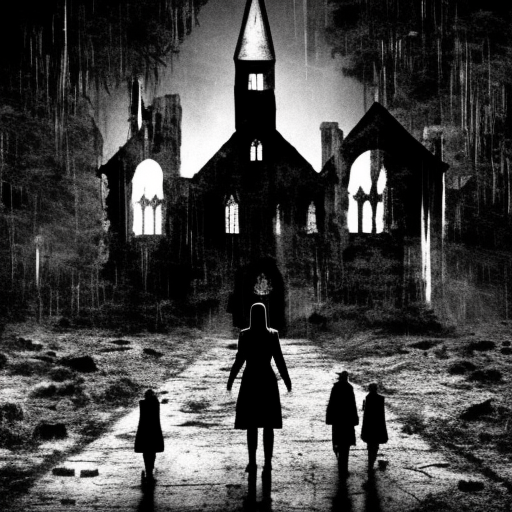The Haunting of Hill House: A Chilling Tale of Psychological Horror
The Haunting of Hill House, written by Shirley Jackson, is a classic novel that delves into the depths of psychological horror. With its eerie atmosphere, mysterious occurrences, and complex characters, this haunting tale explores the boundaries between reality and the supernatural. As the story unfolds, the reader is drawn into the unsettling world of Hill House, where nothing is as it seems. With its masterful storytelling and thought-provoking themes, The Haunting of Hill House continues to captivate readers and leave them questioning the nature of fear and the power of the mind.
An Invitation to Hill House: Setting the Stage for Terror
The story begins with Dr. John Montague, a paranormal investigator, who invites a group of individuals to stay at Hill House to document any supernatural phenomena. Eleanor Vance, a young woman with a troubled past, is one of the guests who accepts the invitation. As Eleanor arrives at Hill House, she is immediately struck by its eerie presence and the strange occurrences that unfold. The house itself becomes a character in its own right, with its labyrinthine corridors, inexplicable cold spots, and unsettling architecture. The stage is set for a terrifying exploration of the human psyche.
Unraveling the Mystery: The Power of Fear and Isolation
As the guests settle into Hill House, they begin to experience a series of unexplained events that test their sanity and grip on reality. Eleanor, in particular, becomes increasingly entangled in the house’s malevolent grasp. Isolated from the outside world, the characters are forced to confront their deepest fears and insecurities. The line between the supernatural and the psychological blurs, leaving the reader questioning what is real and what is a product of the characters’ fragile minds. Jackson skillfully weaves a narrative that explores the power of fear and the ways in which it can consume and manipulate individuals.
The Haunting of the Human Mind: Themes of Loneliness and Desperation
At its core, The Haunting of Hill House is a story about the haunting of the human mind. Eleanor, in particular, serves as a poignant representation of loneliness and desperation. As she becomes more entwined with the house, her own sense of self begins to unravel. The novel explores themes of isolation, the search for belonging, and the lengths individuals will go to find connection. Jackson’s portrayal of Eleanor’s descent into madness is both chilling and heartbreaking, highlighting the fragility of the human psyche and the devastating consequences of unchecked fear.
- The power of fear and its ability to manipulate the human mind.
- The blurred line between the supernatural and the psychological.
- The exploration of loneliness and desperation.
- The impact of isolation on the human psyche.
“No live organism can continue for long to exist sanely under conditions of absolute reality; even larks and katydids are supposed, by some, to dream.” – Shirley Jackson
In conclusion, The Haunting of Hill House is a chilling masterpiece that delves into the depths of psychological horror. With its atmospheric setting, complex characters, and thought-provoking themes, Shirley Jackson’s novel continues to captivate readers. The story serves as a reminder of the power of fear and the ways in which it can shape and manipulate the human mind. The Haunting of Hill House is a must-read for fans of psychological suspense and those who enjoy delving into the darker aspects of the human psyche.












